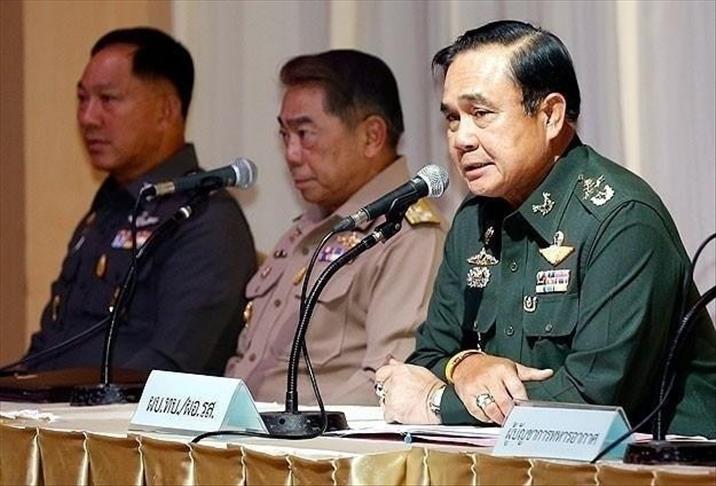
By Max Constant
BANGKOK
The Thai junta has approved holding a referendum on a widely criticized draft constitution, a move that will delay the first post-coup general election from until around August 2016.
After a meeting led by junta leader-cum-Prime Minister General Prayuth Chan-ocha, the junta and the government -- whose compositions largely overlap – decided Tuesday to ask the Thai people whether they approved of the charter drafted by a military-appointed committee.
The first step of the process will be amending an interim constitution established by the military to legitimate its seizure of power in a May coup last year that overthrew the elected government of former Prime Minister Yingluck Shinawatra.
Deputy Prime Minister Wissanu Krua-ngam told the Bangkok Post that the junta and the cabinet will propose a constitutional amendment in June before submitting it to the military-appointed national legislative assembly, which will have 15 days to vote on it. He added that elections would likely take place no later than August next year – a further delay in polls, which the military government had earlier pushed back to early 2016 due to the constitution drafting process.
The amendment will have to detail the questions asked in the referendum, as well as what should be done if the draft constitution is rejected.
The decision to hold a public vote came after leaders of both the constitution drafting committee and the national reform council – organizations in charge of writing and passing the new charter – expressed support for a referendum.
An online survey by the prachamati.org website – “prachamati” means referendum -- also indicated Monday that 93.5 percent of respondents were in favor of a referendum on the draft constitution.
Last month, Colonel Sansern Kaewkamnerd, a deputy government spokesman, said the junta was reluctant to hold a referendum as it could provoke “divisions among Thai people.”
The draft constitution, which is currently being reviewed by the constitution drafting committee before its submission to a vote by the national reform council, includes several controversial sections aimed at limiting the power of elected politicians.
The most controversial clause proposes that a non-MP can become prime minister upon receiving the vote of two-thirds of the House of Representatives, while another says senators will be selected from candidates nominated by ex-politicians and high-ranking civil servants (including military officers).
The draft also proposes the establishment of a national ethics assembly that will “monitor and scrutinize the ethical conducts of senior political-office holders,” and formally bans “populist policies.”
The overthrown government of Yingluck – who has been retroactively impeached and is currently on trial on negligence charges -- has been accused of corruption and initiating “populist policies” by conservatives groups backed by the bureaucracy and military.
Thailand’s previous constitution was abolished after the junta seized power May 22, 2014, following massive anti-government demonstrations calling for “reforms before elections” and for the resignation of Shinawatra's government.
For much of the last decade, Thailand has been paralyzed by protests either by supporters of ex-premier Thaksin Shinawatra -- Yingluck’s elder brother overthrown in a 2006 coup -- or by his opponents.
Anadolu Agency website contains only a portion of the news stories offered to subscribers in the AA News Broadcasting System (HAS), and in summarized form. Please contact us for subscription options.

